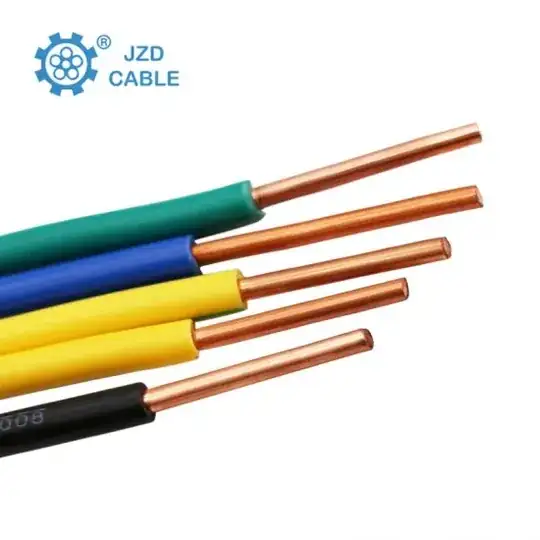Solid wire
These contain one thicker wire inside, and after bending, they stay bent that way. Typical example is breadboard jumper cables.
Examples:

Stranded wire
Multiple very thin wires turned around each other, they bend easily and after bending, move back to their original form (or hang down due to gravity).
Stranded wire can come in various number of strands and thickness (see comment of TimWescott below).
Also there is stranded building wire (see comment of Nate Strickland below).
Example:

Remark of Hearth (see below)
think it wouldn't be a bad idea to mention that, for instance,
silicone-insulated wires are much more flexible (and don't bounce back
nearly as much) than, for instance, PVC insulated wires

